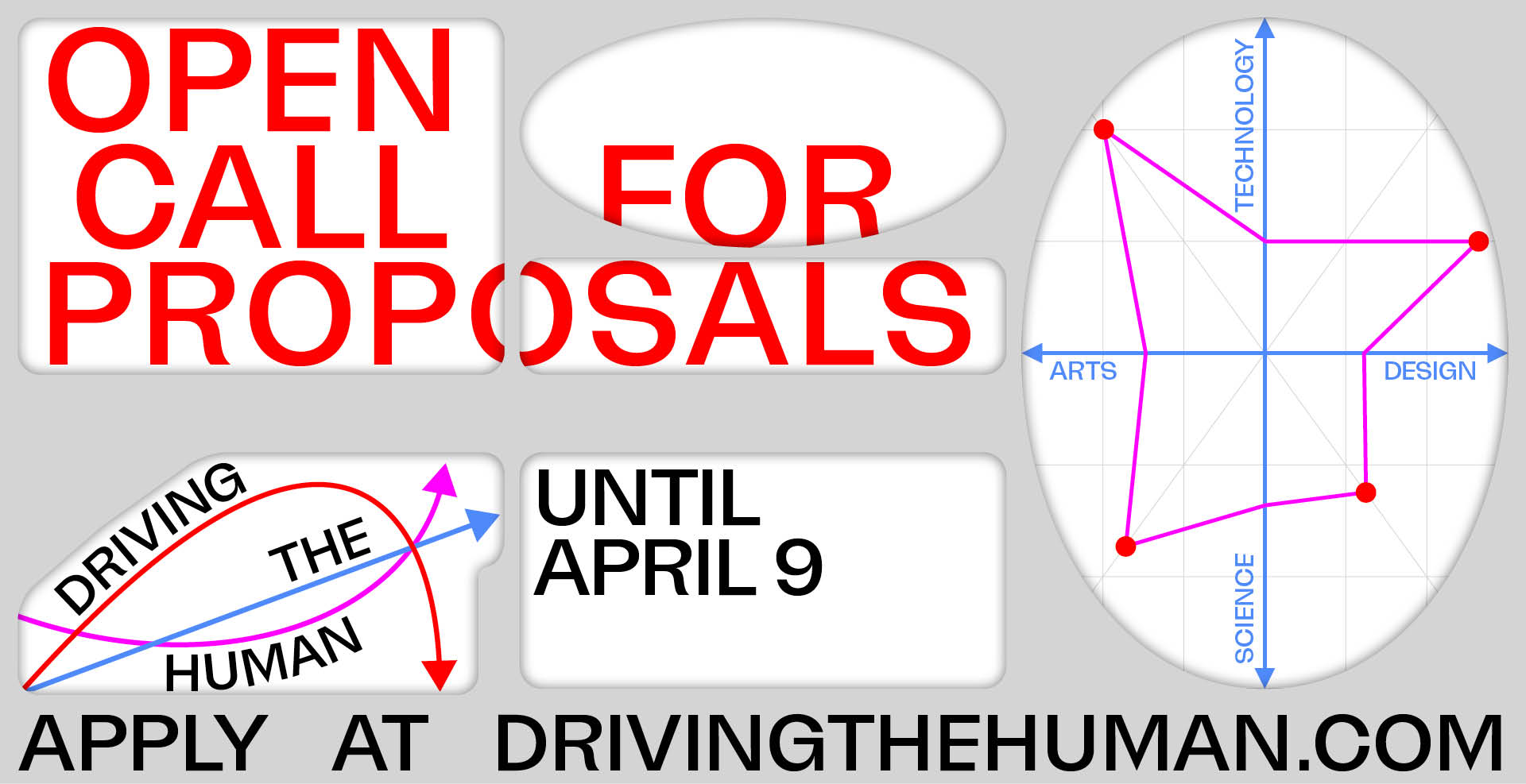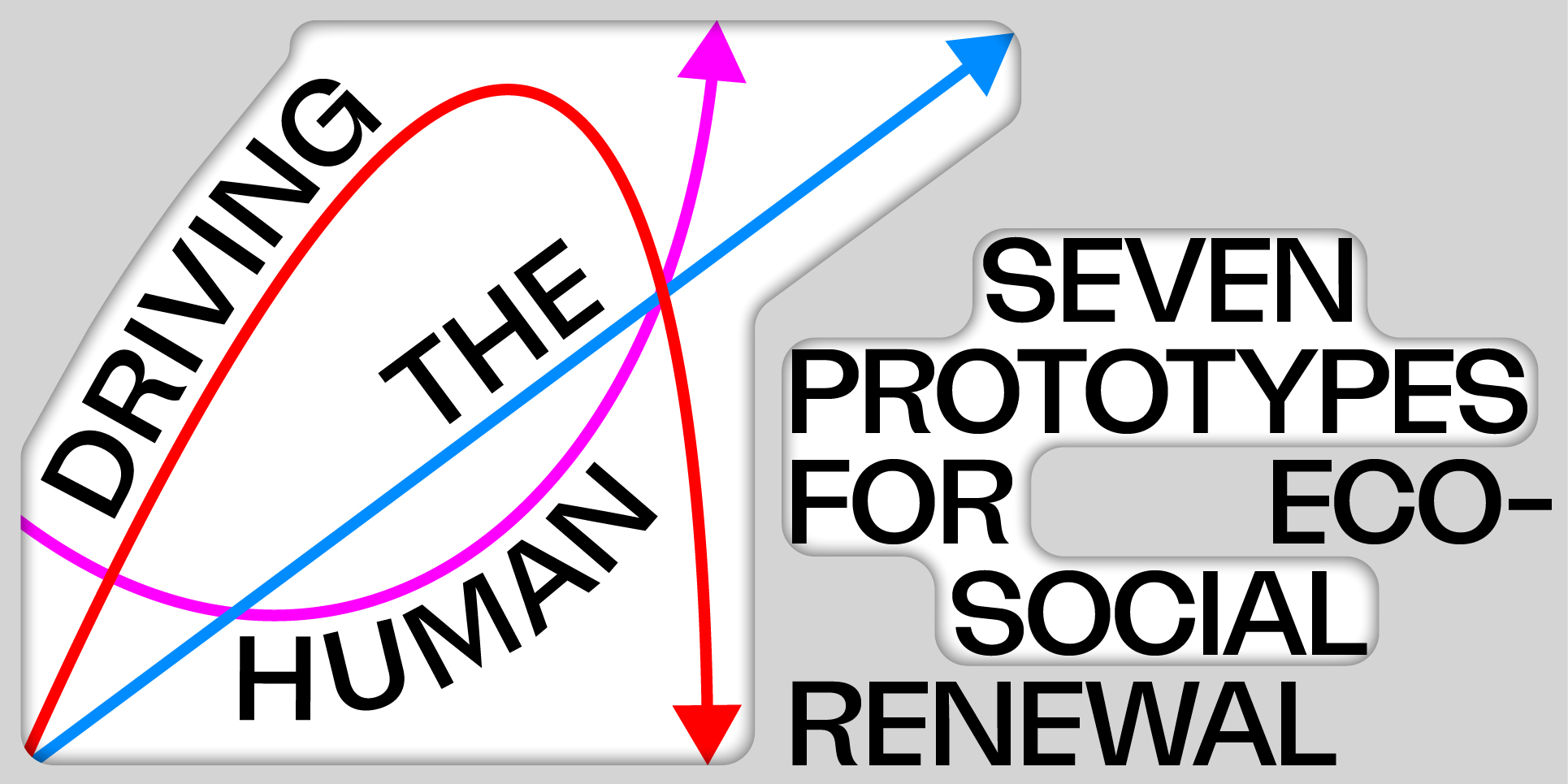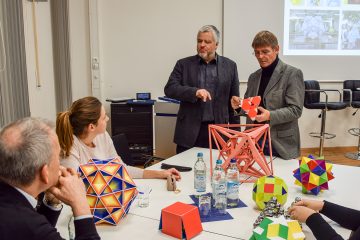Driving the Human Open Call: Ideas and concepts for shaping the future

Munich, 15 February 2021
Following the Opening Festival in November 2020, February 10th marked the launch of the initiative’s next milestone, the Open Call. How can and should our future look like? How do we want to live? Driving the Human, a collaborative project between science, technology and art creates spaces to look at these questions from as many perspectives as possible. The discussion provides valuable indications as to how we might shape paths to possible futures and change our society sustainably in order to meet the great challenges of our time.
“We want to inspire individuals as much as collectives or organizations from diverse backgrounds to share their perspectives on what can or should be possible. We are very much looking forward to seeing new ideas and concepts on how to responsibly shape the future and initiate transformation,” explains Prof. Dr. Martina Schraudner, member of the board at acatech.
For acatech – National Academy of Science and Engineering, the collaboration with the Forecast mentoring program, the ZKM | Center for Art and Media Karlsruhe and the Karlsruhe University of Design (HfG) offers new opportunities to record social opinions, trends and developments, and to use the insights gained to initiate sustainable transformation processes via political and social consulting.
Prof. Dr. Martina Schraudner, member of the board at acatech, and Freo Majer, founder of Forecast, discuss how science and the arts can learn from one another, and why Driving the Human is not just an art project, but why the scientific community should also feel addressed.
acatech: As a representative of science and industry, why is acatech involved with Driving the Human?
Freo: Like our cooperation, Driving the Human, as well as acatech, Forecast is concerned with the question of how innovation processes can be successfully shaped. We no longer need to discuss the fact that silo thinking is a hindrance to this. Everyone knows this and has taken up the cause of what we call non-disciplinary work. But it is surprisingly difficult to implement it. Particularly when it comes to existential threats such as climate change or the extinction of species, polemics, truisms, and enemy stereotypes tend to be a hindrance.
At Forecast, and now at Driving the Human, we try to break down silos by giving the right people a common task. Because at the moment when you have to act, differences are suddenly secondary and no longer a hindrance. The respective individual knowledge and experience come to the forefront and are used to solve the task together. acatech is essentially cross-societal and its experience in mediating, communicating and thinking between research, a wide range of sciences and the various sectors of society, is a real asset. Together, we can gain an overall view of how to negotiate futures. We want to listen carefully, we want to process facts – and acatech is the ideal partner for this. It’s time to find a common language and develop common tools for the innovation process. Up until now, real collaborations have hardly existed.
Martina: That’s true. Art and science “know” each other, they talk to each other, they use each other from time to time, but the relationship has not yet developed to its full potential. When it comes to discussing how we want to live, the arts pursue a different approach. The arts are more sensitive and closer to society and societal futures, they grasp societal changes earlier and make use of them. This is precisely the knowledge we need at acatech. Transformation, as a goal of innovation, requires changes in social behavior. Hence, understanding this behavior is essential.
Through Driving the Human, we are able to broaden our range of perspectives enormously and can invite artists to participate and think along with us. I hope for new impulses in science and business, new topics that are worth thinking about, and new methods that can be used to break down silos; methods that force us to talk about topics in an explanatory way, to no longer take anything for granted. I find the global view very exciting – are there differences, and if so, which ones?
Freo: This “wanting to understand” is something we can learn from the sciences in particular. In addition, the insight that there are different futures and often no clear outcome. Us creatives, we can learn the willingness to fail and doubt. And more sobriety.
Artists invent, spin, fantasize – have a different base energy than scientists and technologists, who are much more focused on processes, data and facts, and constantly question their work. Art is frozen at some point and presented, however exploratory the process may have been.
acatech: What role can – and should – art play in innovation processes?
Martina: The question of where society actually wants to move is very difficult to access scientifically. Art has a different set of tools to answer this question. For me, bringing in this knowledge and putting it up for discussion again and again is part of modern, iterative innovation processes. For example, real-world laboratories could work much more with art to engage people through a different approach to the topic – without formulas or text.
I see the freezing of art, which you just mentioned, for example, as an iterative step in innovation processes that science can pick up, take input and work with it further. This is what Driving the Human will hopefully continue to reveal. A constant exchange in a structured process – to be able to experience that in the context of the project would be an absolute highlight for me.
Freo: I would like to see the arts not only instrumentalized, but their peculiarities used synergistically. Science has always been inspired by art, quite massively by science fiction literature, for example. We can go far beyond that, by doing things together.
Martina: I think the Opening Festival of Driving the Human has already made an important step forward. It was not a classical art festival, mainly dealing with artwork. Instead, the focus was on deep, transdisciplinary discussions. The range of topics was very broad and at times unusual, but still very accessible to academia.
Freo: I was very impressed by the open exchange at the Opening Festival, the deep penetration into topics, the intensive listening of the participants and their honest interest in other perspectives. The virtual event finally convinced me that proximity is also possible digitally – that gives us hope not only for the project!
Acatech: What is the idea behind the Driving the Human Open Call, what are your hopes or expectations?
Freo: We hope to have formulated a truly open “Open Call” that addresses courageous and innovative minds of all kinds. We address collectives, offices or organizations just like individual artists, engineers or inventors, each with their own individual skills. We want to uncover areas of friction, questions, doubts. We are interested in the topics that are in the air. What are the wishes, ambitions, priorities in society? What visions haunt people’s minds, in different milieus, in different regions of the world.
Martina: This absolute openness is the basic prerequisite for getting proposed solutions for social innovations. It will also be very exciting to see if, and if yes, what impact the Covid19 pandemic has. Is this global experience also driving visions and ideas worldwide in the same direction?
Acatech: When will Driving the Human become exciting for the acatech community and why?
Martina: The Driving the Human Open Call in itself will be very interesting. Especially the question I just mentioned, whether there are global “trends” in society, visions or even approaches to solutions, is very exciting for our work. The community is not only an observer here, but will hopefully also participate. Especially in the technical sciences and the technology industry, there are many visionaries – who will hopefully get involved in the transdisciplinary adventure and participate in the Open Call. At the latest when it comes to the elaboration and implementation of the seven selected prototypes, scientists can work with the project leaders very concretely on new and innovative ideas and concepts on how to shape a future together and initiate transformation.
Follow Driving the Human



